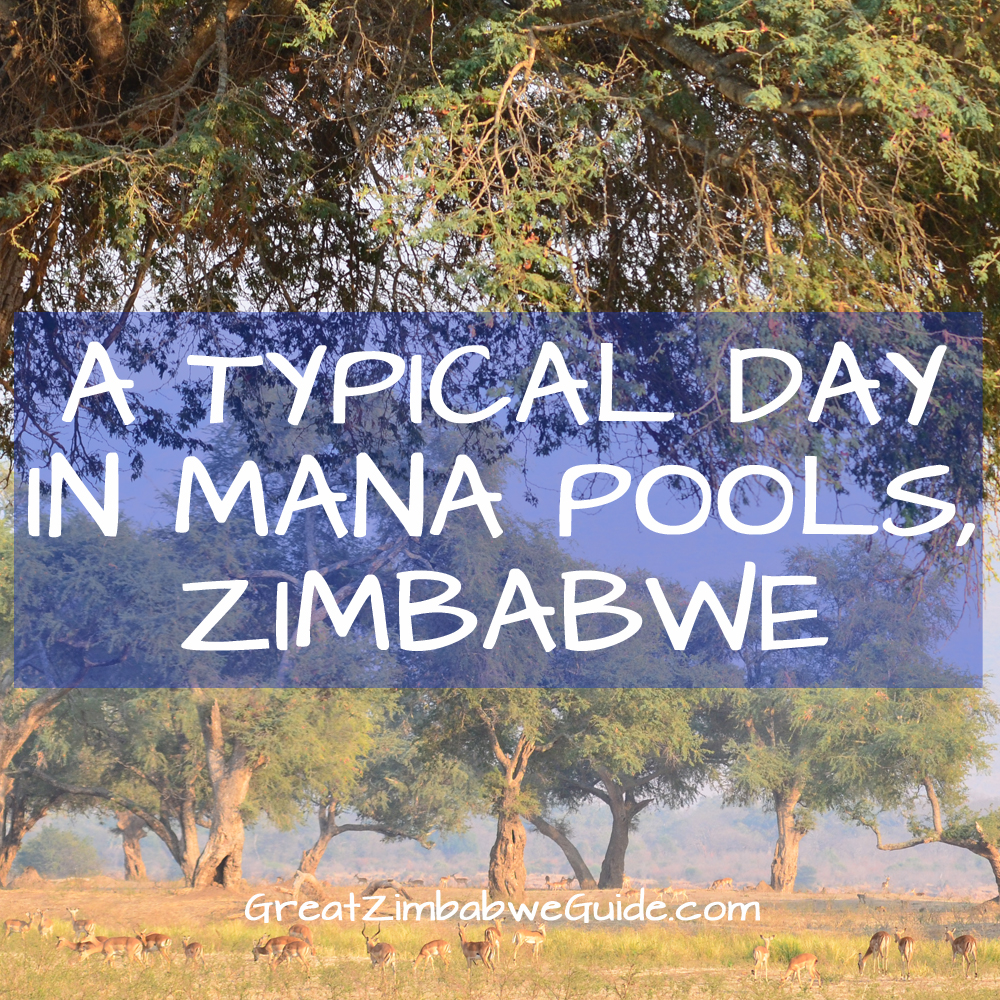 We went camping in Mana Pools National Park at Nyamepi Campsite – and what a life-affirming experience it was. Mana Pools is not like most other game reserves in Africa. There are no fenced areas; no barriers between you and the animals (unless you count the pin-thin wall of a tent). If you choose to stay at the public campsites, there are no guides telling you what is and isn’t safe, no-one with a gun to protect you. There are no shops for you to buy food if the hyenas eat yours during the night. You’re allowed to walk unaccompanied in a place that lion, elephant and leopard call home. It sounds dangerous – and it can be. But with a bit of experience, animal knowledge and common sense, the biggest danger will be that you won’t want to leave.
We went camping in Mana Pools National Park at Nyamepi Campsite – and what a life-affirming experience it was. Mana Pools is not like most other game reserves in Africa. There are no fenced areas; no barriers between you and the animals (unless you count the pin-thin wall of a tent). If you choose to stay at the public campsites, there are no guides telling you what is and isn’t safe, no-one with a gun to protect you. There are no shops for you to buy food if the hyenas eat yours during the night. You’re allowed to walk unaccompanied in a place that lion, elephant and leopard call home. It sounds dangerous – and it can be. But with a bit of experience, animal knowledge and common sense, the biggest danger will be that you won’t want to leave.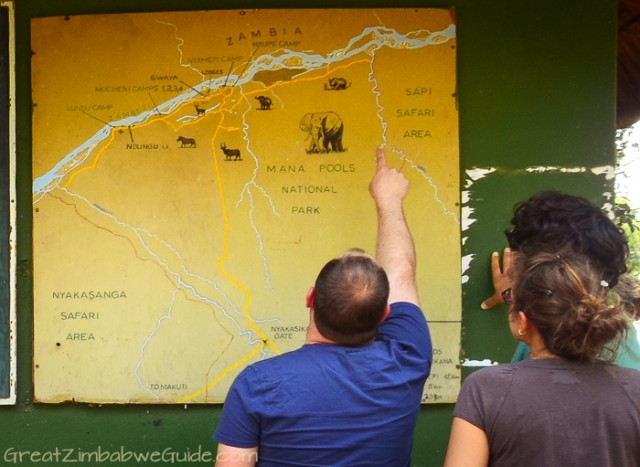
An empty campsite before …
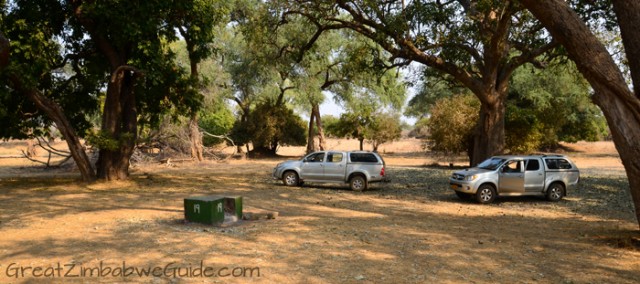
… and after setting up camp
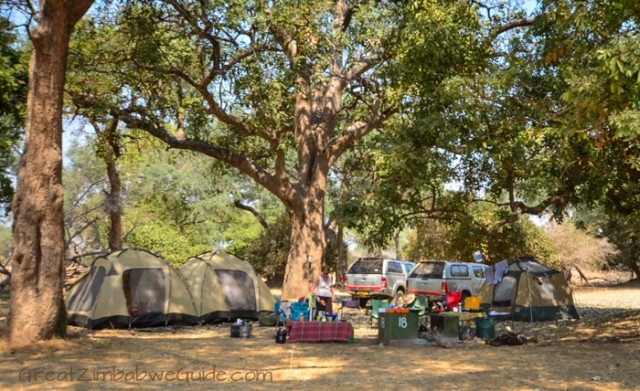 The best way I can describe Mana Pools is to outline what a typical day is like. Being in Mana Pools is such a singular experience that it’s difficult to describe. Here goes …
The best way I can describe Mana Pools is to outline what a typical day is like. Being in Mana Pools is such a singular experience that it’s difficult to describe. Here goes …
A typical day in Mana Pools
6 am: Wake up as the sun is rising. A chill is still in the air; hippos are loudly grunting in the river nearby. 
Check that the hyenas haven’t raided your food (kept in containers in the car) overnight.
6.15 am: Drive to a nearby pool and watch the day unfold in the animal kingdom.
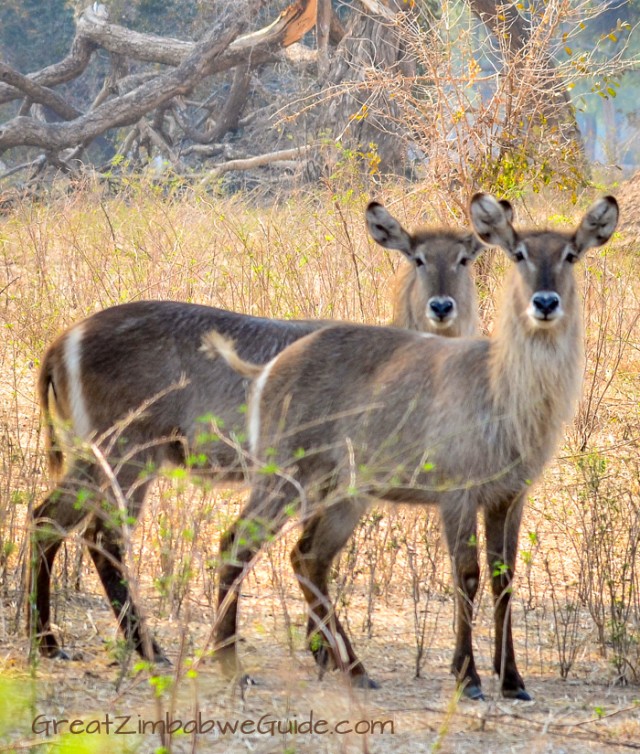
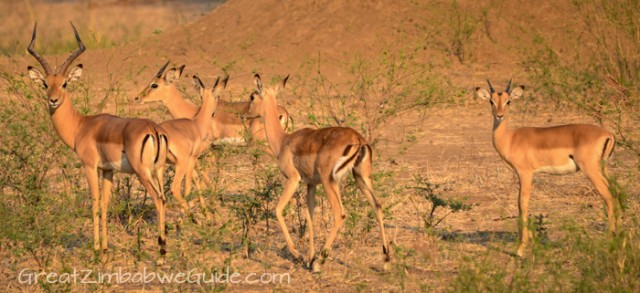
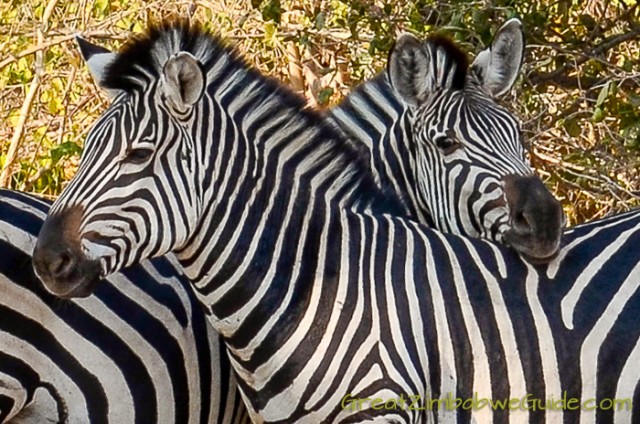
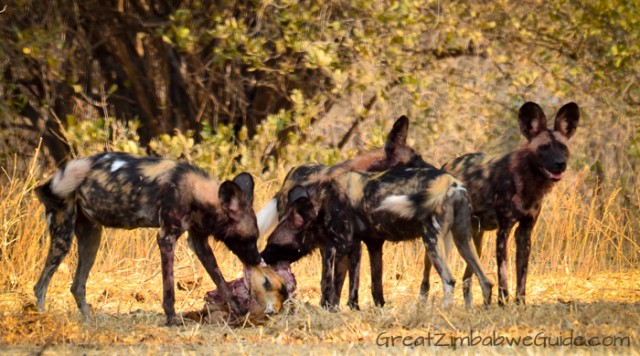
7.15 am:During the drive, leave the car and go for a walk to watch the legendary Mana Mist unfurl from the trees in the sun’s warmth.
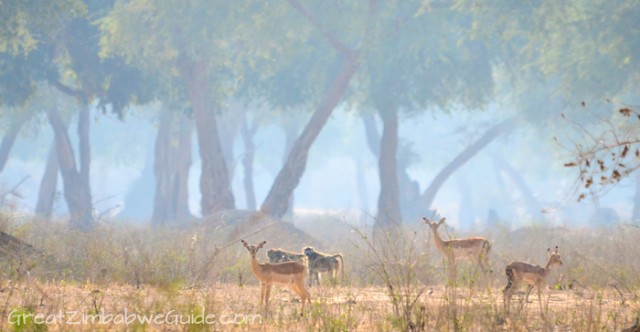
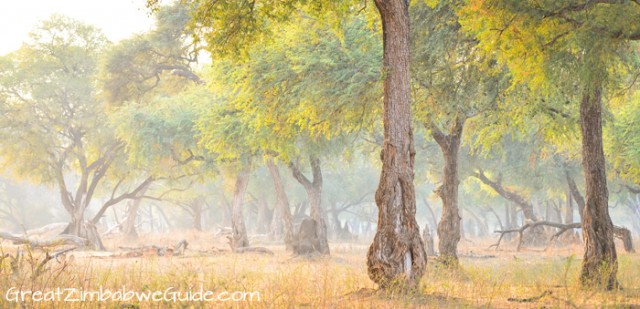
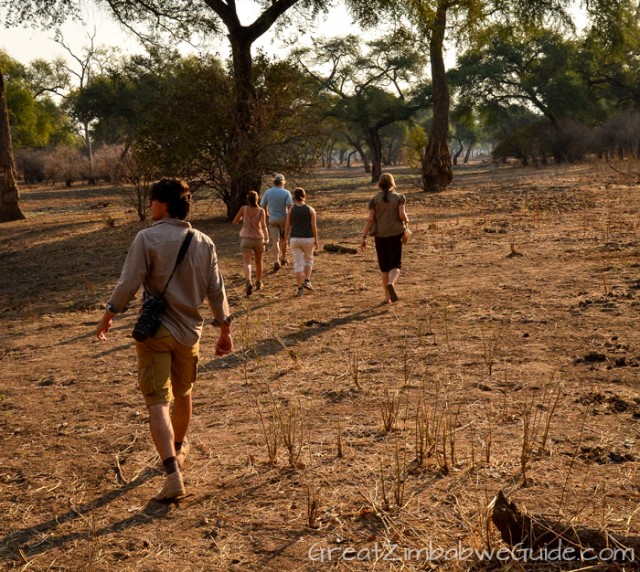
9 am: Get back to camp and start the fire. Cook bacon, eggs and pancakes for breakfast. Brew a fresh pot of coffee and listen to the cacophony of birdsong around you.
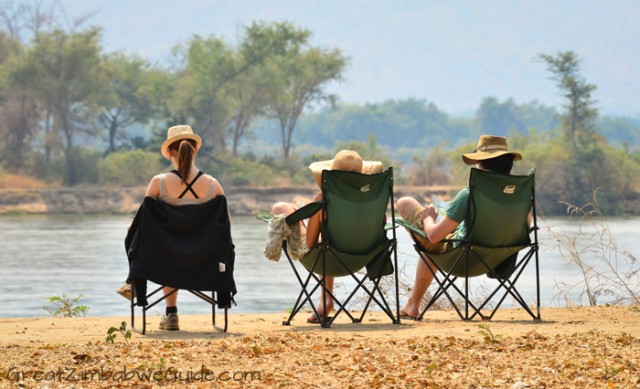
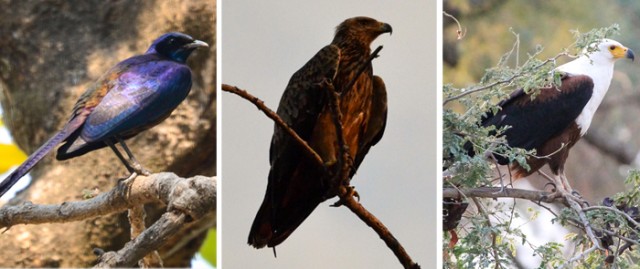
11 am: Catch up on some sleep. Make sure you do this in your tent, not on the chair outside, otherwise you may wake up to find a monkey playing with your toes.
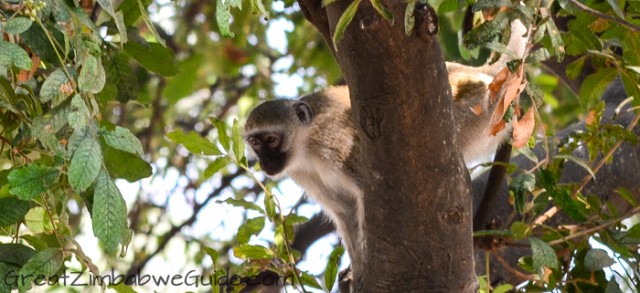
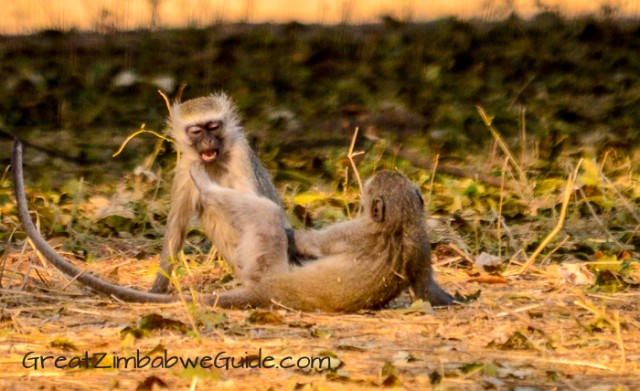
1 pm: Have lunch. Watch the elephants on their daily wander through the camp, as they munch on branches from nearby trees and carefully make their way between the tents and cars towards the river.
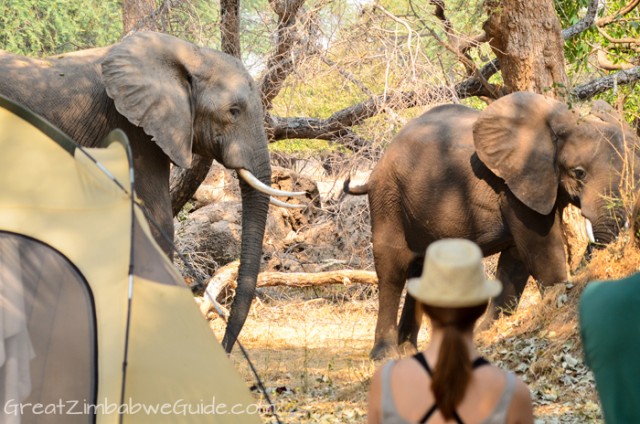
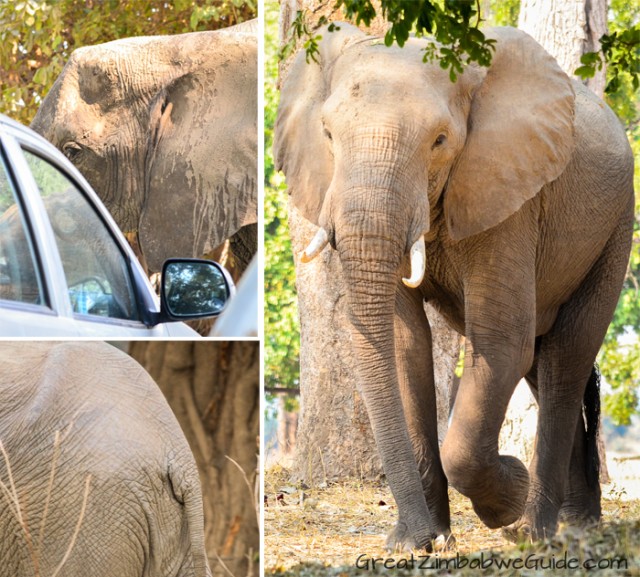
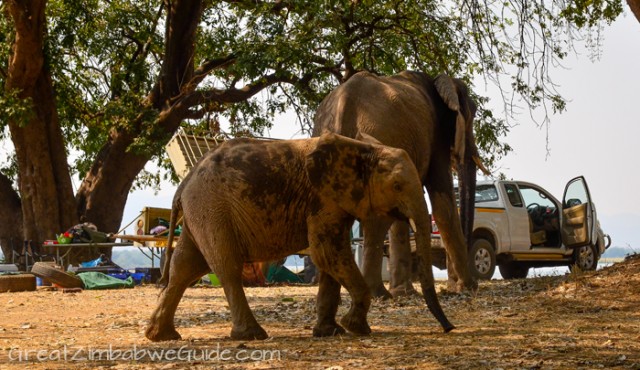
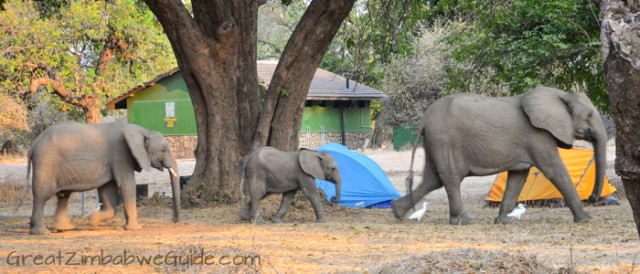
4 pm: Go on an afternoon drive along the river. Take some sundowners with you – this is the perfect place to contemplate the meaning of life with a cold beverage in your hands.
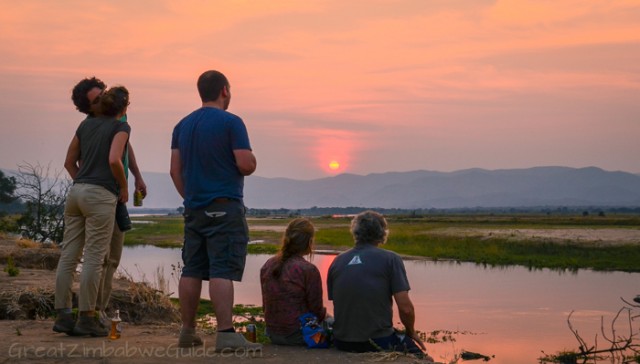
See the nocturnal animals emerging from the bush; getting ready for the night’s adventures.
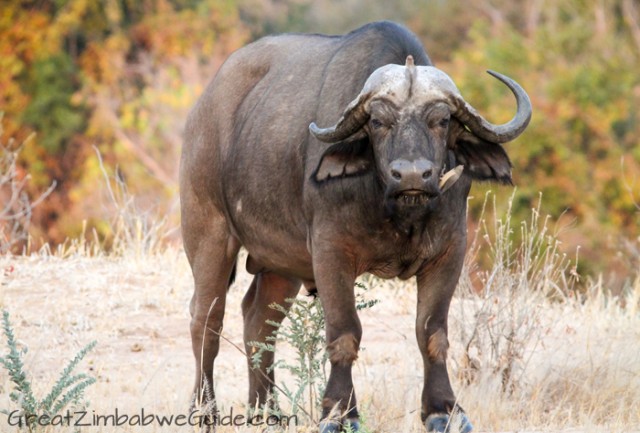
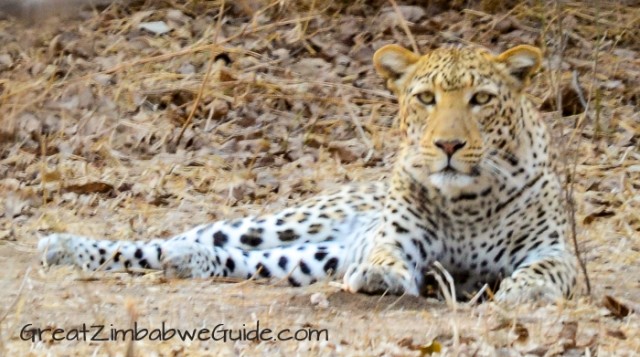
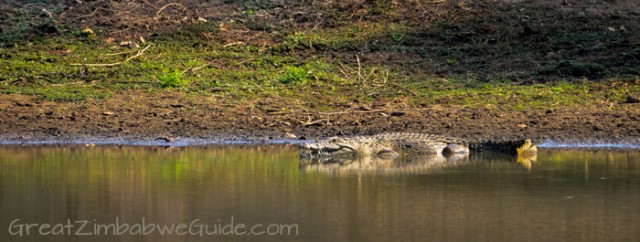
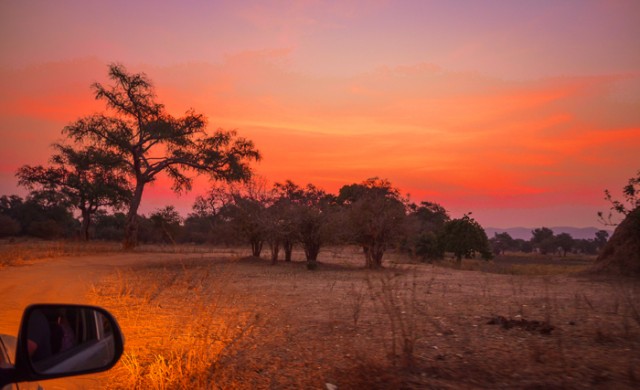
6.30 pm: Back at camp, have a shower. Keep an eye out for monkeys/hyenas peeking round the shower door and shoo them away as necessary.
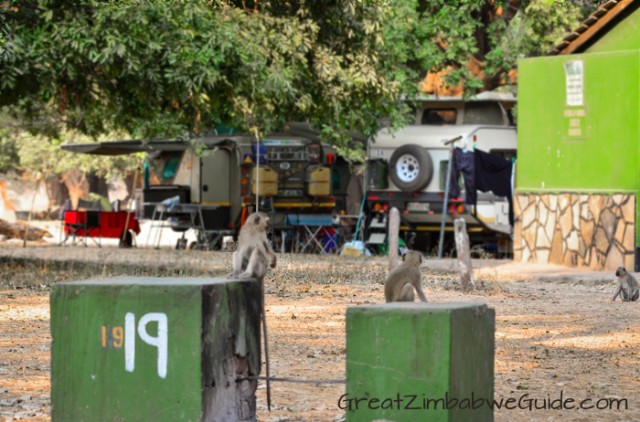
7 pm: Take a few minutes to enjoy the coolness of the night, the sight of the flowing river in front of you, the sound of lions roaring in the distance and the brightness of the stars in the sky. Cook some legendary Zimbabwean beef on the braai (barbeque).
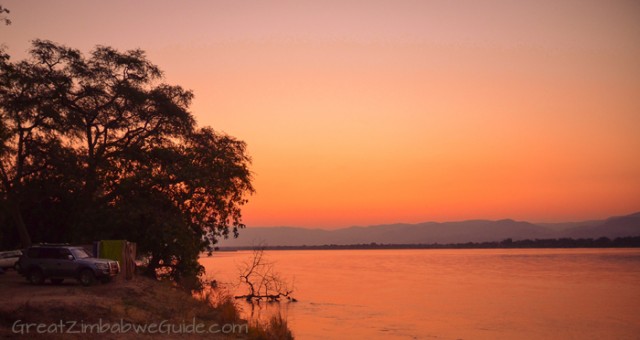
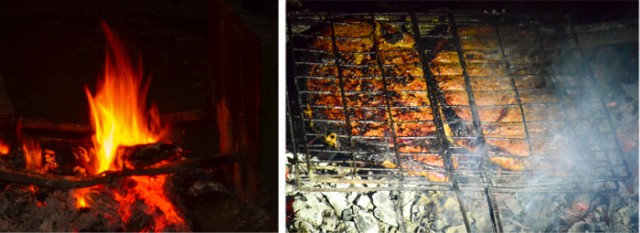
Keep your torch at hand to ensure the hyenas don’t sneak up and steal your food.
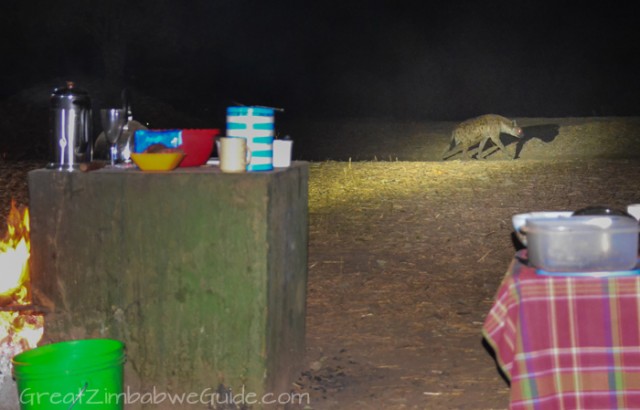
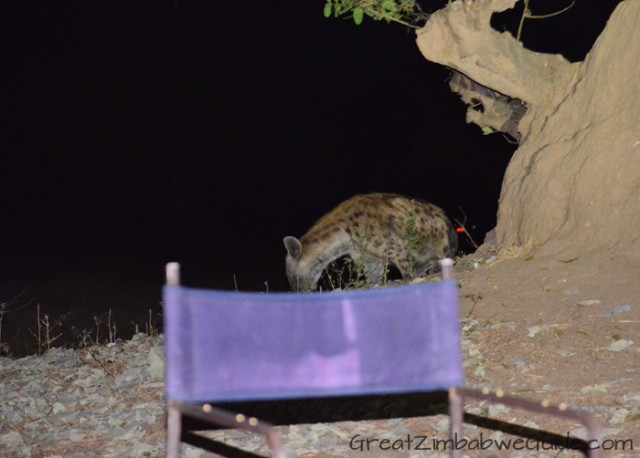
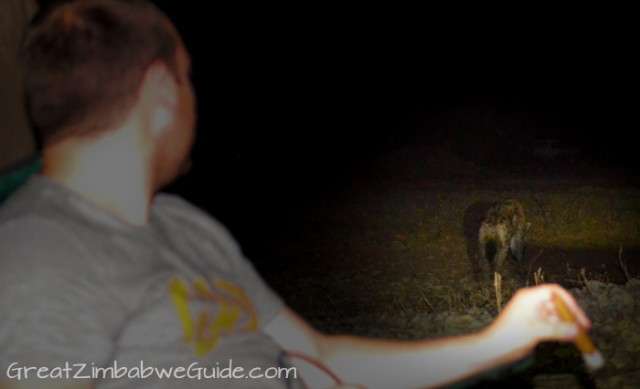
8 pm: Time to wash the dishes, otherwise the hyenas will smell them during the night and think they’re food. When washing the dishes, take a friend with you to keep said hyenas at a safe distance. Go to the shower block and brush your teeth, etc. Go in a group for safety, and ensure you all have torches so as not to inadvertently trip over a hippo/buffalo. They don’t respond well to humans tripping over them.
9 pm: Bed time: Anything edible should be put in containers in the car again.
Zip up the tent, crawl into your camp bed. Watch the silhouette of a hyena slink past your tent, and then another and another. Hear them fighting between themselves, leaves crackling and voices whooping. As the commotion dies down, the sound of a hippo’s laugh pierces the silence once more. You hear the snap of branches and the sound of slow, soft footsteps nearby as an elephant eats from its favourite tree – the one under which you had been sitting just minutes earlier.
Part of the Classic Zimbabwe holiday 2013 series. Read the next post where I talk about my near-death experience: Mana Pools Hippo charge
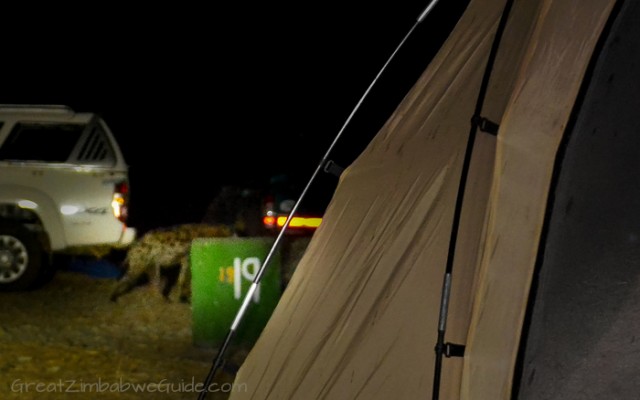


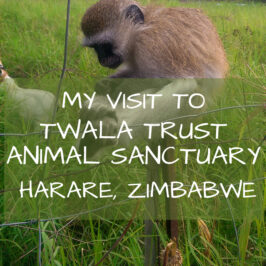
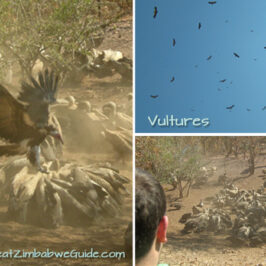

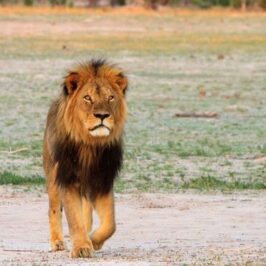

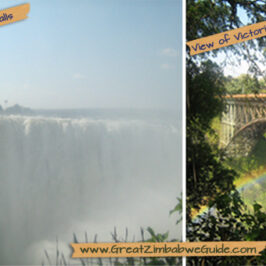

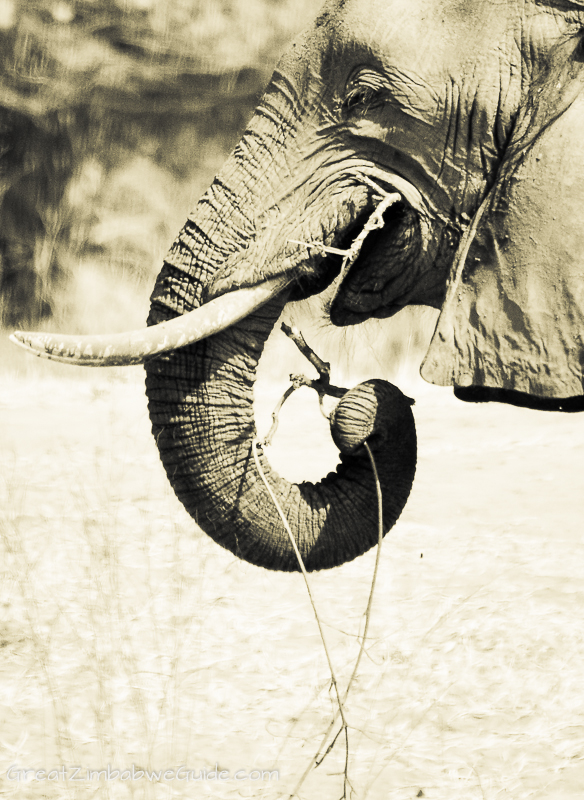
Leave a Reply